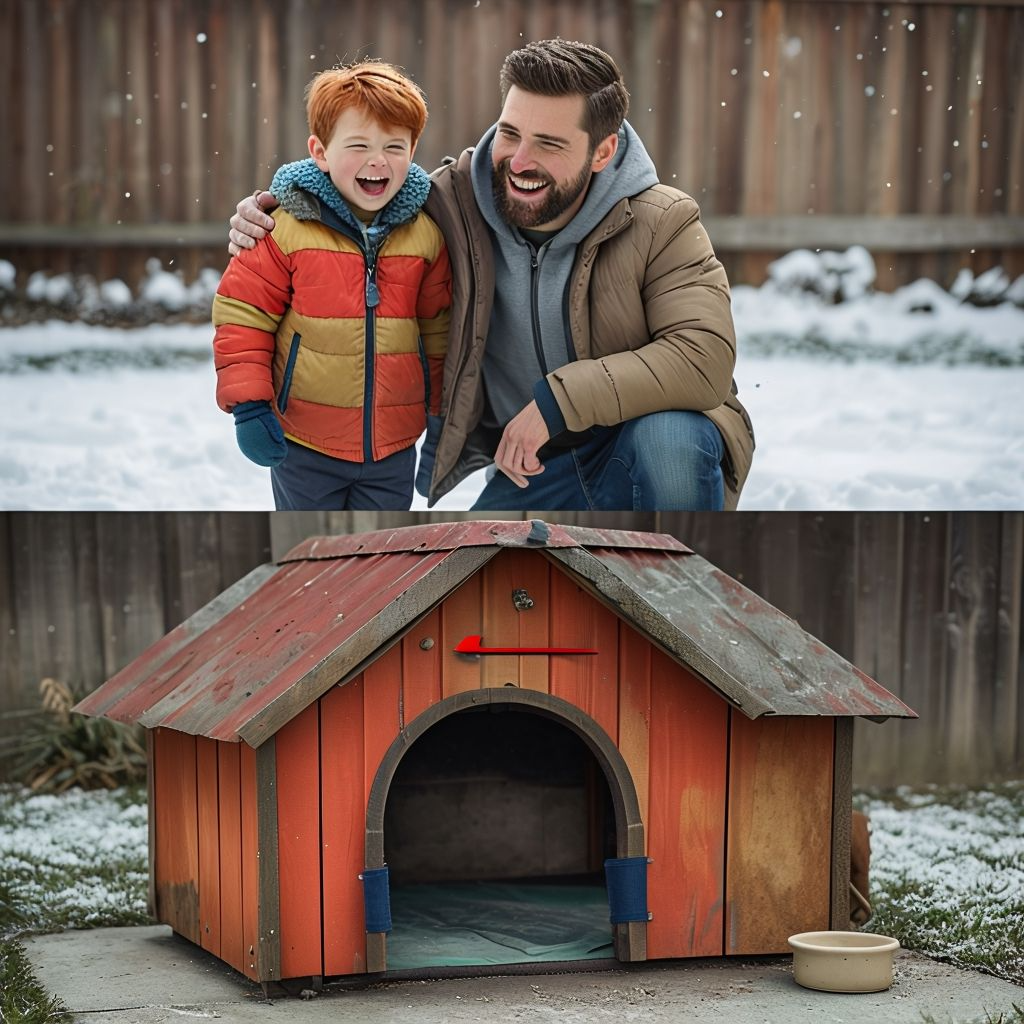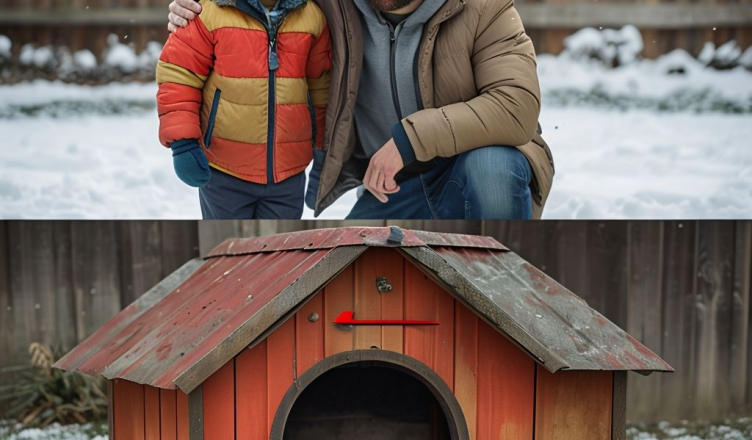In the quiet village of Klenova Dolyna, nestled among the snow-draped hills of Western Ukraine, life moved slowly, like a forgotten folk tale. Children played freely in the streets. Doors stayed unlocked. Neighbors shared not just loaves of fresh bread, but worries and dreams alike.
But on one frozen morning, that peace shattered.
Five-year-old Bohdan Shevchuk vanished from his own yard.
One moment he was there, playing with his wooden toy car near the porch. The next — gone. His father, Andriy, had been chopping wood nearby. His mother was kneading dough inside the house. No sound. No scream. No footprints in the snow. Just silence. And the sudden, crushing absence of a child.
The entire village mobilized. Dozens of volunteers combed through forests, wells, barns, basements. Police brought in dogs, questioned strangers, examined every angle. But no answers came. No ransom, no clues. Only an unbearable emptiness.
Days turned into weeks. Then years.
Andriy changed. His face aged a decade in a single season. His voice grew quieter. He stopped laughing. But every single day, without fail, he walked the same paths — along the fence line, to the edge of the woods, around the neighbor’s yards — searching, scanning, listening. People said he was clinging to a ghost.
His wife, Halyna, fell ill. Grief lived in the walls of their home like a shadow that never left.
Eight years passed.
By now, Bohdan would have been a teenager. His room remained untouched. His parents kept his things just as they were, not out of denial — but out of quiet, aching love.
Then, one day, something strange happened.
The old man who lived next door, Petro, suddenly sold his house. No warnings. No goodbyes. He had always been quiet, a solitary type. People barely noticed his absence. A young couple bought the place and began cleaning out the yard.
Andriy passed by the property out of habit. He stopped when he saw the doghouse — or rather, what was under it.
The doghouse, where Petro’s mutt used to sleep, had been moved. Beneath it was concrete. But one edge was raised slightly — just enough to be odd. Something about it stirred a cold instinct in Andriy’s chest. He asked the new homeowner if he could look. The man shrugged and helped lift the slab.
Underneath was a rotted wooden trapdoor. It looked ancient, out of place. And it was locked from the inside.
Andriy knocked.
Nothing.
He knocked again, harder. A pause. Then — the faintest noise.
A scratch. A movement. A presence.
They pried the door open.
What they saw stopped their breath.
In a cramped underground space, barely tall enough to stand, stood a boy. Gaunt. Pale. Covered in dirt. He shielded his eyes from the sudden light. Then whispered:

— “Tato?”
(Dad?)
It was Bohdan.
Alive.
He had been there all along.
He was kept in a hidden cellar, no larger than a shed. The space had been crudely furnished — a cot, some blankets, a chemical toilet, jars of food. Investigators later found soundproof padding and chains. It was a makeshift prison — right under everyone’s noses.
Petro, the quiet old man, had kidnapped him. A man with no criminal record, no known relatives, no prior suspicion. The motive remains uncertain. Some say he lost his own child years ago and tried to “replace” him. Others believe it was darker.
Why hadn’t Bohdan called for help?
He later explained, voice trembling:
— “He said if I screamed, he’d kill my mom. So I didn’t.”
And so, for eight long years, the boy remained silent. In the dark. Listening to life pass just meters above him.
The nation reeled when the story broke. News channels aired the footage. Experts speculated. Psychologists discussed trauma and memory. But away from the cameras, a broken family quietly began to heal.
Bohdan was taken to the hospital. He was fragile, both physically and emotionally. But he was alive. And his father — the man who never stopped searching — held his son again.
They say recovery will take years. That Bohdan may never fully be the same. But when he saw his mother for the first time, he cried. Not like a child, but like someone who had been silent for too long.
Today, Bohdan lives far from that village. He goes to school. Slowly, cautiously, he speaks. Smiles. Feels sunlight on his face without fear.
Andriy speaks little about those eight years. When asked how he knew, why he kept searching, he simply says:
— “I didn’t know. I just felt. A father knows when a son is still out there.”
Because sometimes, what saves a life is not luck or logic. It’s a quiet, stubborn hope that refuses to die — even when everything else has.
Even when the answer is hidden beneath a doghouse.
